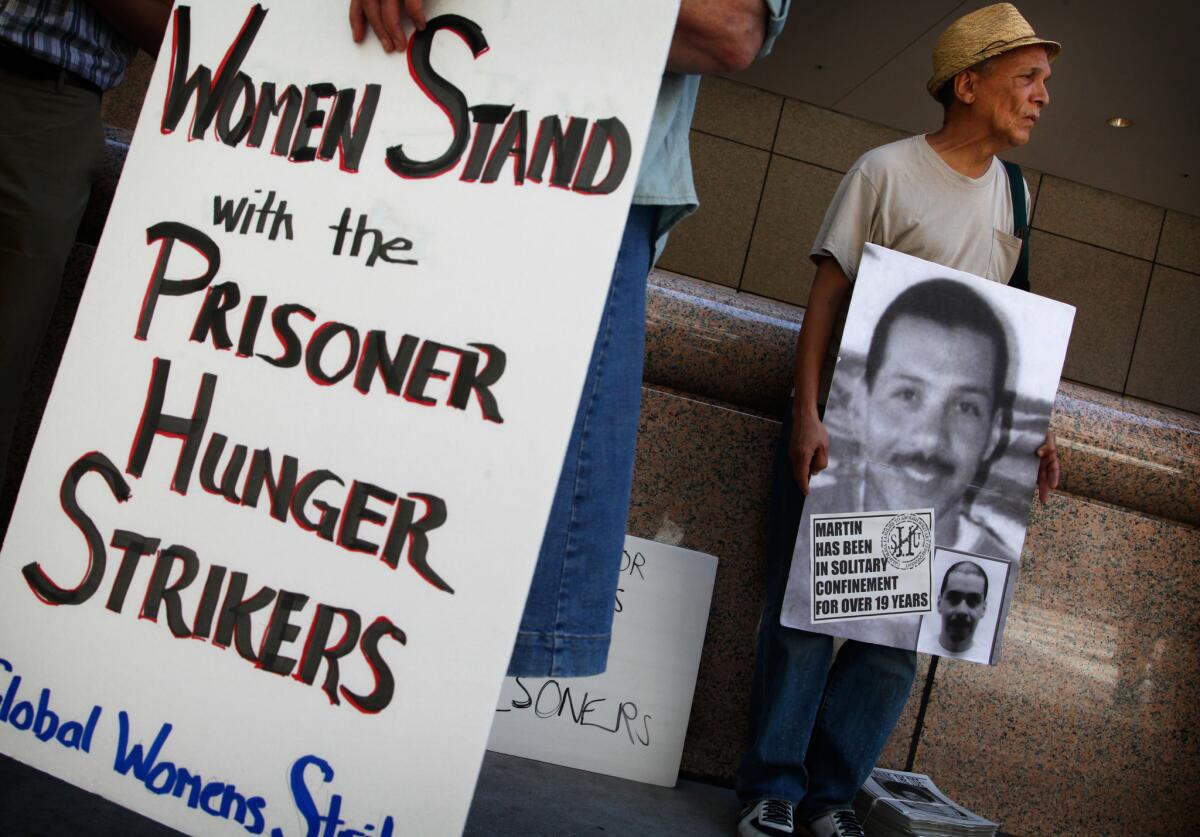Some prison inmates have ended meal strikes, officials say

- Share via
SACRAMENTO — As meal strikes and work stoppages continue in most of California’s prisons, 10 inmates at one facility have ended their protests and resumed eating, officials said.
Those who were on strike at the High Desert State Prison in Susanville, in northeastern California, are no longer under medical observation, said the federal overseer of healthcare in the corrections system.
Other officials said they had not met any of the strikers’ demands. Participants were protesting solitary confinement conditions, among other issues.
Strike participants numbered just under 29,000, down from 30,000 when the strike began Monday, with about 1,700 inmates still failing to go to their prison jobs or classes.
The protest is the largest in California history, involving three times as many inmates as participated in hunger strikes two years ago.
Those actions captured international attention, sparked public hearings and resulted in such changes as a five-year program for inmates to work their way out of solitary confinement.
The mass protest originated at high-security Pelican Bay prison, near Oregon. Inmates there and at other prisons can be held in solitary confinement indefinitely; some have been there for decades. The protesters seek a five-year limit on isolation.
They also ask for increased education and rehabilitation programs for those in isolation and want federal oversight on any agreement to end the protest. Other demands include better food, clothing and cleaning supplies.
ALSO:
California prisons change inmate privileges
Prison protest continues with 29,000 refusing meals
Medical staff keep tabs on some inmates who refuse meals
Follow strike updates on Twitter: @paigestjohn
More to Read
Get the L.A. Times Politics newsletter
Deeply reported insights into legislation, politics and policy from Sacramento, Washington and beyond. In your inbox twice per week.
You may occasionally receive promotional content from the Los Angeles Times.











